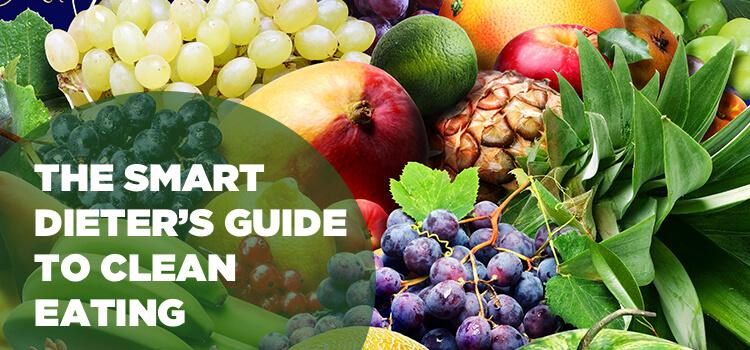
The Smart Dieter’s Guide To Clean Eating Diet
“Clean eating” are two of the most popular words for those looking to lose weight. However, there are misconceptions among dieters about what it actually means to eat clean and how to get started.
As a smart dieter, you know that to be successful with clean eating you must first understand the concept and then determine if and how it suits your lifestyle. This article covers:
- the basic premise of clean eating
- reasons to eat clean
- tips on how to get started
What is clean eating?
Clean eating has nothing to do with whether food is clean or dirty. In fact, it has little to do with tracking nutrients at all and instead focuses on what you’re eating. Specifically, it means eating foods that are as unprocessed and “real” as possible.
The basic premise of clean eating is that you consume foods in their natural state, or as close to their natural state as possible. This brings us to the three basic principles of clean eating:
- Eat real food – real food is food that is unprocessed and still in its natural state. This doesn’t mean that you can never eat any processed food on a clean eating diet, but you should keep it to a minimum.
- Eat to nourish your body – eating regular, balanced meals is a basic principle of clean eating. This ties in with cooking more meals at home so that you know exactly what you’re eating and how healthy it is.
- Eat “safe” food – safe food may sound like a silly concept, but it’s important. Some people translate “safe” food to mean organic food, but you don’t necessarily have to buy organic food for it to be safe. Instead, you should wash food thoroughly before using it, cook it at safe temperatures, and store it properly after cooking.

In addition to these basic principles, you may want to enhance your clean eating diet by:
- Eating local – this aligns with the concept of eating “safe” food, with the added benefit that you’re also supporting local farmers.
- Eating plant-based foods more often – you don’t have to go vegan to eat clean, but you should consider increasing your intake of plant-based foods. Some easy ways to do so include swapping meat for plant proteins like beans, lentils, peas, and whole grains like quinoa and barley.
- Getting physical – clean eating is a lifestyle, not a diet. This means that you should focus on getting plenty of physical activity, sleeping at least 7 to 8 hours each night, and establishing other healthy habits.

Why should you eat a clean diet?
There are obvious health benefits to clean eating – weight loss in particular. However, this isn’t the only reason to adopt a clean eating regime.
Here are some of the main reasons smart dieters turn to a clean diet:
- More energy – eating balanced meals for breakfast, lunch, and dinner, and having balanced snacks, is the simplest way to boost energy. Always watch your protein, carbohydrates, and fats to ensure you’re getting enough of each.
- More satisfied – healthy whole foods fuel your body with stable energy for hours after your meals. When you feel satisfied, you’re more likely to stick to your diet.
- More mental clarity – clean eating has physical benefits, but don’t overlook the mental benefits as well. Nutrient-dense foods regulate hormones, chemicals, and other brain-related processes in the body.
While there are other reasons, these three are the most important because they also support your other health-related activities. Clean eating means that you can fuel your physical activity, stave off cravings, and feel great about yourself and your progress.
Check also: 5 Herbs Which Act As Natural Appetite Suppressants >>




